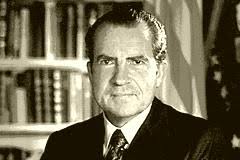Understanding Richard Nixon: His Life and Legacy

Introduction
Richard Nixon, the 37th President of the United States, remains a figure of deep complexity and controversy in American history. His tenure from 1969 to 1974 was marked by significant domestic and foreign policy achievements, yet mired by scandal and ultimately his resignation. As recent discussions about political integrity and accountability surface, analysing Nixon’s legacy becomes increasingly relevant.
Nixon’s Presidential Tenure
Nixon assumed office during a tumultuous period in America, grappling with social upheaval and anti-war protests stemming from the Vietnam War. He aimed to expand on his predecessors’ initiatives while also focusing on a policy termed ‘Vietnamisation’, which sought to end U.S. involvement in Vietnam by transferring combat duties to South Vietnamese forces.
One of Nixon’s major accomplishments was the landmark Environmental Protection Agency’s establishment and the implementation of the Clean Air Act. Additionally, he opened diplomatic relations with the People’s Republic of China, reshaping global geopolitics and easing Cold War tensions. The 1972 Strategic Arms Limitation Talks (SALT) with the Soviet Union were another significant achievement, representing a thaw in U.S.-Soviet relations.
The Watergate Scandal
However, the Nixon administration became infamous for the Watergate scandal, a political crisis stemming from a break-in at the Democratic National Committee headquarters. Investigations revealed a cover-up involving members of Nixon’s administration, leading to mounting pressure for accountability.
Following a series of revelations and the Supreme Court ruling demanding the release of tape recordings, Nixon became the first U.S. president to resign on August 8, 1974. His resignation speech and the subsequent pardon by his successor, Gerald Ford, have sparked ongoing debates regarding legal and ethical standards in American politics.
Conclusion
Richard Nixon’s life story encapsulates pivotal developments in the United States during the mid-20th century. His achievements in foreign policy and domestic reforms contrast sharply with the ethical failures that led to his downfall. As contemporary society continues to scrutinise political integrity, Nixon’s legacy serves as a cautionary tale on the balance of power, ethics in governance, and the impact of leadership decisions. Understanding Nixon provides critical insights into the historical context of current affairs and political dilemmas.




